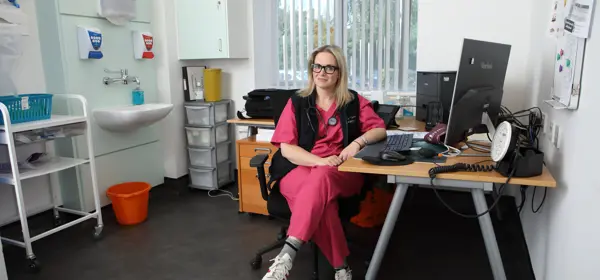When GPs need to appeal CQC decisions
When GPs need to appeal CQC decisions
If a practice receives a notice of proposal to cancel its registration this can be appealed but the effort involved can be overwhelming
General practice tends to do better than other sectors when inspected by the CQC (Care Quality Commission). In its recently published report, the regulator of health and social care in England found that only 1 per cent of GP practices were rated ‘inadequate’.
This still, however, equates to around 60 GP practices, for whom an inadequate rating can be absolutely devastating for staff morale and patient confidence. The practice not only has to pick itself up psychologically but urgently address the regulatory concerns which underpin the rating.
There can be worse to come. If a GP practice has been rated inadequate in two consecutive inspections, the regulator’s guidance requires it to consider issuing an initial notice of proposal to cancel registration, which can then be followed by a notice of decision to cancel it. It can then no longer provide health services.
So what can a GP practice do if it receives a notice of proposal? The CQC provides guidance on its website about the various processes and rights of appeal but the time required and work involved in preparing an effective appeal and then dealing with the CQC and tribunal should not be underestimated. You may wish to consider seeking expert legal assistance.
BMA Law was established by the BMA to provide expert legal services tailored specifically to members and their family. Our team consists of legal professionals specialising in healthcare-related law and their focus will always be on your specific need. We have experience of handling hundreds of appeals across different tribunals.
Here is a recent case in which we were involved:
A GP practice with a recent history of mixed outcomes at CQC inspections was placed in CQC ‘special measures’ following an inadequate rated inspection. The practice attempted to work with the CQC and its ICB ([integrated care board], although it was then a clinical commissioning group) to address the concerns.
A subsequent inspection seven months later resulted in a further inadequate rating, prompting the CQC to issue a notice of proposal to cancel registration. With the support of a specialist GP healthcare consultant, the practice prepared a factual accuracy response to the draft inspection report and representations to the notice. But the CQC was not persuaded, the draft report was finalised without any changes to the practice’s individual ratings and the CQC issued a notice of decision to cancel registration.
The practice instructed me to act for it in the appeal against the notice of decision.
Following initial strategy discussions about the concerns raised, available evidence and legal tactics, a full and persuasive appeal was prepared and submitted to the tribunal. This was accompanied by extensive supporting evidence.
We worked as a team with the practice manager, responsible partner and the specialist GP healthcare consultant, to prepare the appeal. Important aspects of the appeal included succession planning, which involves having a well drafted partnership agreement in place to plan for the retirement of partners and making interim support available to the practice in order to support regulatory compliance and patient safety.
Alongside the CQC’s enforcement action, the ICB issued a remediation notice and termination notice (ending the practice’s contract to provide GP services) relying in the main on the evidence contained in CQC’s notices of proposal and decision and also referencing CQC’s inspection report. Working with the specialist GP healthcare consultant, we liaised with the ICB to explore a way forward.
To protect the practice’s position, we made a formal referral of the dispute with the ICB to NHS Resolution and prepared formal representations to the adjudicator.
The outcome was positive. In light, in particular, of the succession planning proposal, the interim support package and the strength of evidence of improvements in support of both the referral to NHS Resolution and the tribunal appeal, the ICB agreed a resolution which avoided the closure of the practice.
The CQC agreed to pause the enforcement action and a ‘stay’ of the appeal at tribunal. Improvements found at the next CQC inspection resulted in an improved rating and the practice moved out of special measures. We invited CQC to agree a ‘consent order’ to end the enforcement action under the notice of decision and to bring the tribunal proceedings to an end.
To summarise, based on our experience with many cases, these would be the key points for a successful CQC appeal:
- Strategy – develop an overall strategy at the outset
- Experts – bring in relevant expert healthcare consultants, as required
- Evidence – focus on identifying and providing relevant evidence
- Persuade – submit strong and persuasive appeal documentation at the first opportunity
- Improvements – implement improvements so as to build additional evidence to support the appeal
- Communication – seek a practical resolution and keep channels of communication open with both the CQC and ICB
- Work towards agreement with the regulator to end enforcement by the use of a ‘consent order’ agreed by the parties and issued by the tribunal.
We view a successful appeal as one which never gets to a hearing because the strength of the appeal that we submit, with supporting evidence, persuades CQC to stop the enforcement action. In some cases, matters must be escalated to CQC board level to encourage a satisfactory resolution.
We work closely with your team to identify evidence to support your case. We often work alongside experienced and respected healthcare consultants, to assist you. Evidence is all when bringing an appeal. Without supporting evidence, even the most highly skilled legal argument and a genuine commitment by the partners and staff to address any concerns, is likely to fail. We will advise you realistically on the merits of your case based on the available evidence.
In addition, we provide legal advice in areas such as partnership agreements, practice mergers and takeovers, property law and dispute resolution. To discuss any of the legal matters we cover, please contact us on 0300 123 2014 or email info@bmalaw.co.uk
Errol Archer is consultant solicitor advocate at BMA Law



